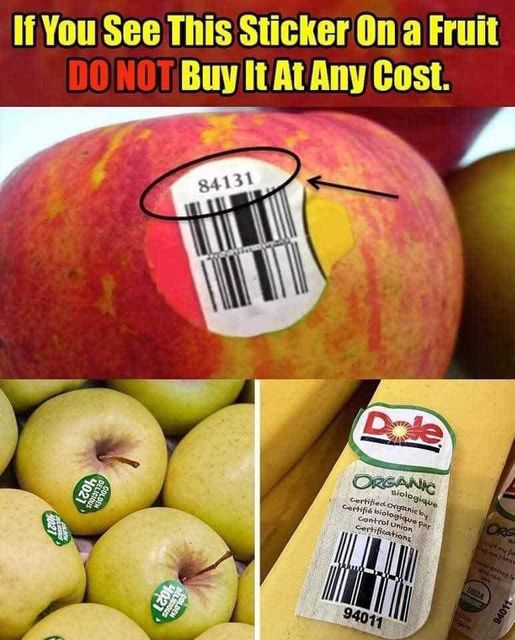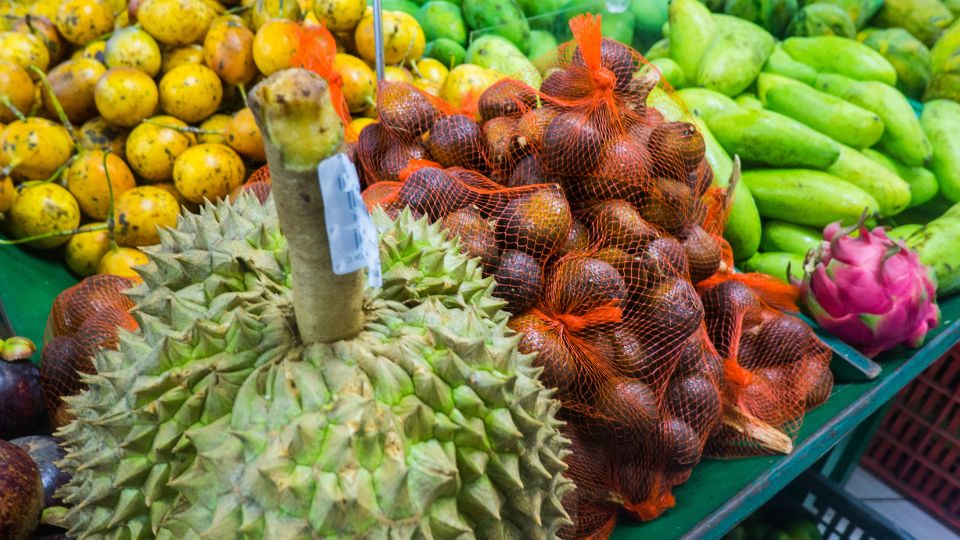
Have you ever puzzled about the little numbers on the fruit in your neighborhood grocery store?
These labels not only speed up the checkout process but also provide important details about the fruit’s journey from farm to table.
These labels are primarily found on fruits, although they can also be found on vegetables, herbs, and nuts. These labels provide important information on how the fruits are grown.
Generally, fruit labels fit into one of three distinct categories:
Conventional: Conventional farming is identified by a four-digit code. Traditional farming methods are used to grow these fruits, which frequently involve the use of chemical fertilizers and pesticides that may have an adverse effect on the health of the land.
Genetically Modified: Genetic alteration is denoted by a five-digit code beginning with the letter 8. Since these fruits are genetically modified to withstand pests, pesticides may be used during the growing process.
Natural: An organic certification code is a five-digit code that starts with the number 9. Because organic fruits are grown without the use of artificial fertilizers or pesticides, the soil is healthier and the environment is preserved.

MAKING INFORMED CHOICES: LOCAL SUPPORT, ENVIRONMENT, AND PESTICIDES
Pesticides and Health: Although fruits cultivated traditionally may include pesticides, it’s important to keep in mind that these fruits usually have pesticide residual levels that meet safety regulations.
Nonetheless, a lot of people select organic products in order to reduce their risk of pesticide exposure, particularly if they have certain dietary requirements or health concerns.
Environmental Impact: There are environmental ramifications when deciding between conventional and organic farming.
Sustainability and soil health are major concerns in organic farming systems.
These techniques are meant to lessen discharge of chemicals, minimize soil erosion, and conserve water. You may think of supporting organic farming as a means of encouraging agriculture that is more ecologically friendly.
Local Farmers: Supporting your community’s economy, lowering food miles, and frequently guaranteeing fresher produce are just a few of the benefits of purchasing from local farmers at farmers’ markets or through Community Supported Agriculture (CSA) programs.
Sustainable farming methods can be used by local farmers even if they are not organically certified.
Talking with nearby farmers might provide you an understanding of their farming practices.
STIMULATING OPTIONS FOR CONSUMERS:
Supporting clear food labels as consumers can enable you to make wise decisions.
Certain organizations and businesses provide more details about the fruit’s origins, growing methods, and certifications than just the minimum required on labels.
Enhancing information exchange within the sector can be achieved by endorsing companies that value transparency.
You can choose foods that support local agriculture, meet your nutritional needs, and respect the environment by taking these things into account.
Determining the meaning of fruit labels is a crucial first step toward choosing foods you should eat with knowledge.
Thus, the next time you grab a fruit, spare a few minutes to figure out that small sticker. It may just provide more insight into your eating habits than you might have ever thought.
If local purchases are not possible, select NUMBER 9 for Organic.






0 Comments